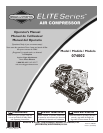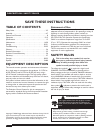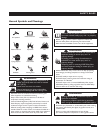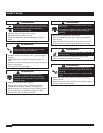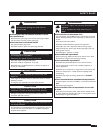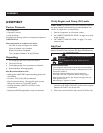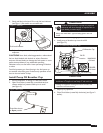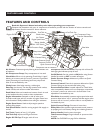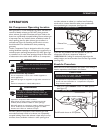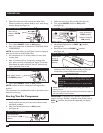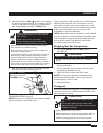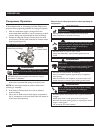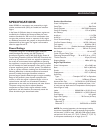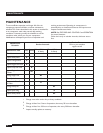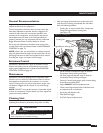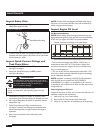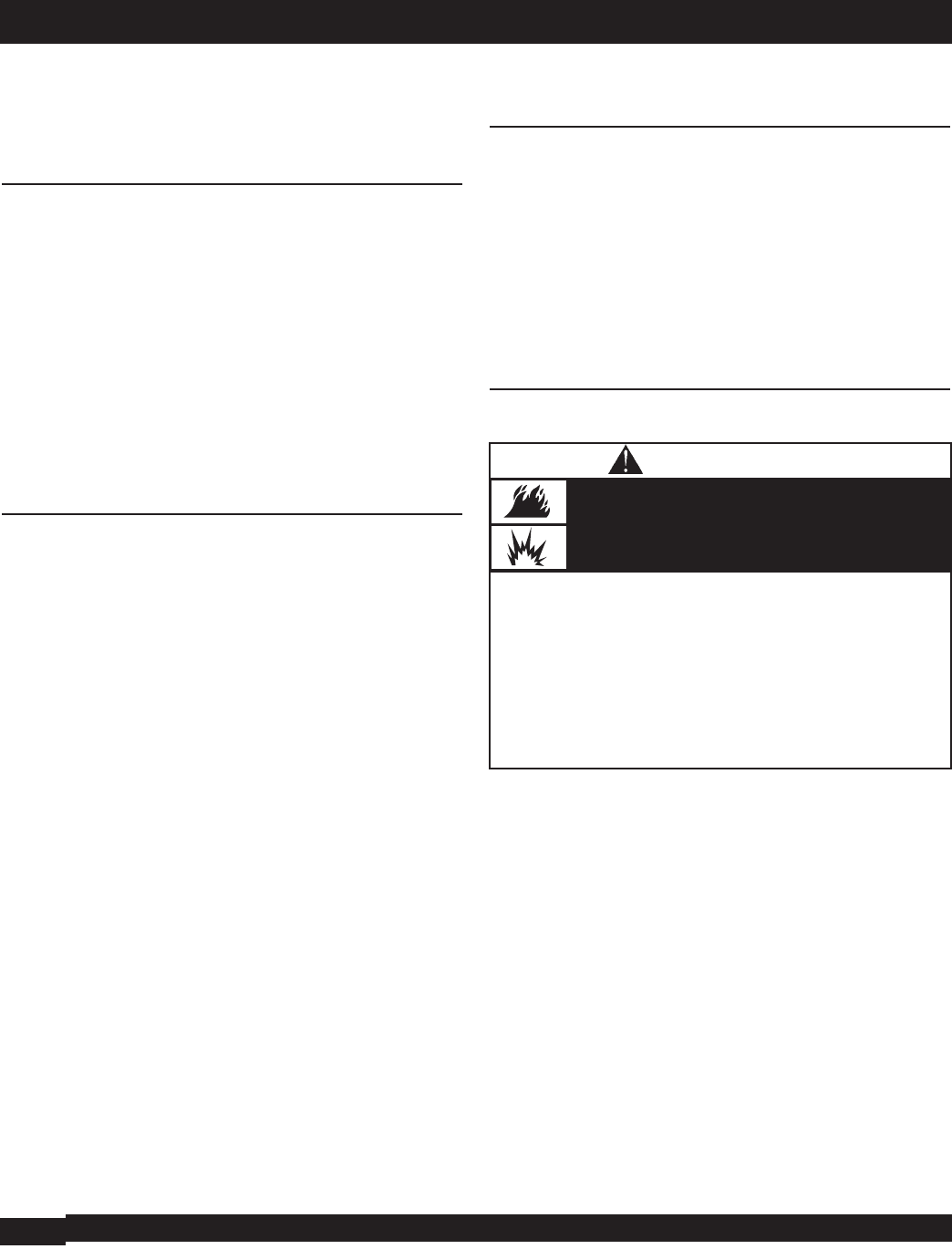
6
ASSEMBLY
Carton Contents
• Air compressor
• Operator’s manual
• Pump oil fill cap
If any parts are missing, call the air compressor helpline at
1-800-743-4115.
Your compressor is ready for use when:
Oil levels in pump and engine are verified
Pump oil breather cap is installed
Break-In Procedure completed
Tire is properly inflated to 36 psi (2.5 bars).
Unpacking
1. Cut shipping straps from carton and discard.
2. Lift carton off unit.
3. Cut shipping straps from compressor and discard.
4. Roll compressor off shipping pallet.
Also Recommended for Use:
• Safety glasses (ANSI Z87.1 approved safety glasses with
side shields)
• Air hose - 25 ft (7.5M), 3/8 inch diameter
• Quick connector fitting - Use type I/M quick connect
fittings that attach to 1/4 inch NPT thread
• Hearing protection (ANSI S3.19-1974) in noisy
environments
• Respirator (NIOSH-approved) in dusty environments
Verify Engine and Pump Oil Levels
CAUTION! Any attempt to start the compressor before it
has been properly serviced with the recommended oil may
result in an engine and / or pump failure.
1. Place air compressor on a flat, level surface.
2. See “INSPECT ENGINE OIL LEVEL” on page 16 to verify
engine oil level.
3. See “INSPECT PUMP OIL LEVEL” on page 17 to verify
pump oil level.
Add Fuel
NOTE: This engine is certified to operate on gasoline.
Exhaust Emission Control System: EM (Engine Modifications).
1. Use clean, fresh, regular UNLEADED fuel with a
minimum of 85 octane. DO NOT use fuel which contains
Methanol. DO NOT mix oil with fuel.
2. Clean area around Fuel Tank Cap, remove Fuel Tank Cap.
ASSEMBLY
WHEN ADDING FUEL
• Turn compressor OFF and let it cool at least 2 minutes before
removing fuel cap. Loosen cap slowly to relieve pressure in tank.
• Fill fuel tank outdoors.
• DO NOT overfill tank.Allow space for fuel expansion.
• If fuel spills, wait until it evaporates before starting engine.
• Keep fuel away from sparks, open flames, pilot lights, heat, and
other ignition sources.
• DO NOT light a cigarette or smoke.
Fuel and its vapors are extremely flammable and
explosive.
Fire or explosion can cause severe burns or
death.
WARNING



